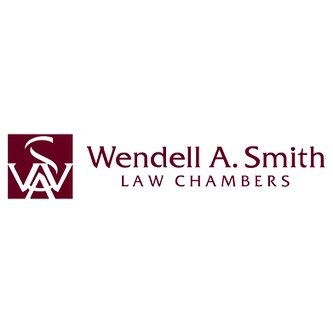Best Commercial Real Estate Lawyers in Freeport
Share your needs with us, get contacted by law firms.
Free. Takes 2 min.
Free Guide to Hiring a Real Estate Lawyer
List of the best lawyers in Freeport, Bahamas
About Commercial Real Estate Law in Freeport, Bahamas:
Commercial real estate in Freeport, Bahamas refers to property that is used for business purposes, such as office buildings, retail stores, industrial facilities, and hotels. The laws governing commercial real estate in Freeport are designed to protect the rights of property owners, investors, and tenants while promoting economic development and growth in the region.
Why You May Need a Lawyer:
There are several situations where you may require legal help in commercial real estate in Freeport, Bahamas. Some common reasons include negotiating lease agreements, drafting contracts, resolving disputes with landlords or tenants, conducting due diligence on a property purchase, and navigating complex zoning regulations and permitting processes.
Local Laws Overview:
Key aspects of local laws relevant to commercial real estate in Freeport, Bahamas include property rights and title transfers, land use regulations, zoning laws, building codes, environmental regulations, lease agreements, tax laws, and dispute resolution mechanisms.
Frequently Asked Questions:
1. Can foreigners own commercial real estate in Freeport, Bahamas?
Yes, foreigners can own commercial real estate in Freeport, Bahamas with certain restrictions and regulations in place.
2. What are the steps involved in purchasing commercial real estate in Freeport, Bahamas?
The steps typically involve conducting due diligence, negotiating the terms of the sale, drafting and signing a purchase agreement, obtaining financing, and completing the closing process.
3. How are lease agreements regulated in Freeport, Bahamas?
Lease agreements are governed by the Bahamian Contract Law, which outlines the rights and responsibilities of landlords and tenants.
4. What are the common disputes that arise in commercial real estate transactions?
Common disputes include breach of contract, non-payment of rent, property damage, zoning violations, and landlord-tenant disagreements.
5. Are there any tax incentives for commercial real estate investors in Freeport, Bahamas?
Yes, there are tax incentives available for commercial real estate investors, such as property tax exemptions and duty reductions on building materials.
6. How can I ensure compliance with environmental regulations when developing commercial real estate in Freeport, Bahamas?
You can hire environmental consultants to conduct assessments, obtain necessary permits, and implement best practices for sustainable development.
7. What are the key considerations for negotiating a lease agreement in Freeport, Bahamas?
Key considerations include rental price, lease term, maintenance responsibilities, property improvements, renewal options, and exit clauses.
8. How can a lawyer help me resolve a commercial real estate dispute in Freeport, Bahamas?
A lawyer can provide legal advice, negotiate settlements, represent you in court proceedings, and help enforce your rights under the law.
9. Are there any restrictions on property development in Freeport, Bahamas?
Yes, there are restrictions on property development, such as height restrictions, setback requirements, and environmental impact assessments.
10. How can I protect my investment in commercial real estate in Freeport, Bahamas?
You can protect your investment by conducting thorough due diligence, obtaining title insurance, drafting comprehensive contracts, and seeking legal advice when needed.
Additional Resources:
For more information on commercial real estate in Freeport, Bahamas, you can contact the Bahamas Real Estate Association, the Office of the Attorney General, or consult with a local commercial real estate lawyer.
Next Steps:
If you require legal assistance in commercial real estate in Freeport, Bahamas, consider reaching out to a qualified lawyer who specializes in real estate law. They can provide you with personalized advice and guidance based on your specific needs and circumstances.
Lawzana helps you find the best lawyers and law firms in Freeport through a curated and pre-screened list of qualified legal professionals. Our platform offers rankings and detailed profiles of attorneys and law firms, allowing you to compare based on practice areas, including Commercial Real Estate, experience, and client feedback.
Each profile includes a description of the firm's areas of practice, client reviews, team members and partners, year of establishment, spoken languages, office locations, contact information, social media presence, and any published articles or resources. Most firms on our platform speak English and are experienced in both local and international legal matters.
Get a quote from top-rated law firms in Freeport, Bahamas — quickly, securely, and without unnecessary hassle.
Disclaimer:
The information provided on this page is for general informational purposes only and does not constitute legal advice. While we strive to ensure the accuracy and relevance of the content, legal information may change over time, and interpretations of the law can vary. You should always consult with a qualified legal professional for advice specific to your situation.
We disclaim all liability for actions taken or not taken based on the content of this page. If you believe any information is incorrect or outdated, please contact us, and we will review and update it where appropriate.








